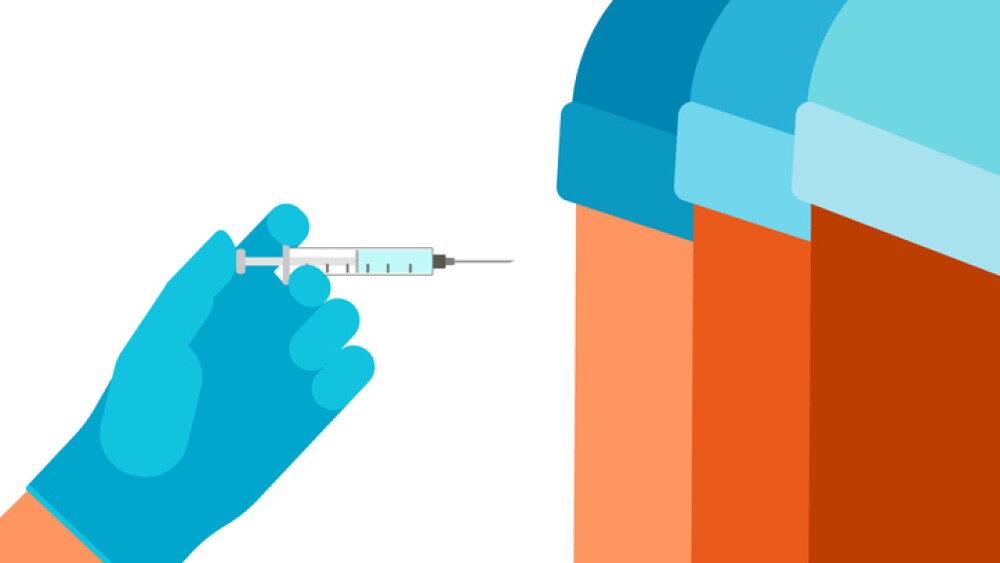BERKELEY, Calif., April 24, 2017 (GLOBE NEWSWIRE) -- XOMA Corporation (Nasdaq:XOMA), a pioneer in the discovery and development of therapeutic antibodies, today announced that it has achieved positive Phase 2 proof-of-concept results for X213 in physiological hyperprolactinemia (HPRL). X213 is a monoclonal antibody that neutralizes prolactin action.
“This proof-of-concept study was an important milestone in demonstrating the potential efficacy of this novel antibody. We believe that X213 could be a treatment option for a wide range of patients with hyperprolactinemia including prolactinoma and anti-psychotic induced HPRL as the signs and symptoms are similar irrespective of the etiology,” said Jim Neal, Chief Executive Officer of XOMA. “Consistent with our business strategy, we intend to maximize the value of X213 for shareholders by seeking a license partner for the program.”
The Phase 2 study was a multi-center, open-labelled, randomized, single-dose, controlled trial of intravenously administered X213 in women who wished to suppress lactation immediately post-partum. The results of the study indicate that X213, when given as a single 700mg intravenous infusion during the first day post-partum, was effective in suppressing milk secretion, as well as breast engorgement and pain in 100 percent of the treated women. In addition, none of the treated women experienced rebound breast symptomatology during the 21-day study period. While the study was not intended, or powered to show statistical significance, it demonstrated that X213 was: safe and well tolerated; caused no significant adverse events (SAEs); showed favorable pharmacokinetics with a terminal half-life of two weeks and; demonstrated target (prolactin receptor) engagement and mechanism of action confirmation by serum prolactin profiling.
“The findings from this proof-of-concept study are encouraging and confirm that X213 inhibits prolactin signaling and thus, may be effective in blocking effects of symptomatic hyperprolactinemia,” said Dr. Shlomo Melmed, endocrinologist, Dean of the Medical Faculty and Professor of Medicine, Cedars-Sinai Medical Center, Los Angeles. “New classes of drugs such as X213 may offer benefit to the up to 20 percent of patients who do not respond to, or are intolerant of, current standard of care involving dopamine agonist medications.”
Prolactin is a multifunctional hormone that is primarily secreted by the pituitary and whose best-known functions are related to lactation and reproduction. In pregnant women, excess prolactin secretion (hyperprolactinemia) occurs to enhance breast development and to induce lactation postpartum. Commonly encountered etiologies of hyperprolactinemia include prolactinoma, medication effect, kidney failure, cystic or granulomatous pituitary lesions, and disorders which interfere with hypothalamic inhibition of prolactin release. Prolactinomas, benign tumors of the pituitary gland, hypersecrete prolactin with significant medical consequences, particularly hypogonadism, infertility and osteoporosis.
About X213
X213 (formerly LFA 102) is a first-in-class allosteric inhibitor of prolactin action. It is a humanized IgG1-Kappa monoclonal antibody that binds to the extracellular domain of the human prolactin receptor with high affinity at an allosteric site. The antibody has been shown to inhibit prolactin-mediated signaling, and it is potent and similarly active against animal and human prolactin receptors.
The Phase 2 study evaluated the safety, tolerability, pharmacokinetics and pharmacodynamics of X213 in post-partum women. The study was conducted at multiple medical centers in Spain.
About XOMA Corporation
XOMA has an extensive portfolio of products, programs, and technologies that are the subject of licenses the Company has in place with other biotech and pharmaceutical companies. Many of these licenses are the result of the Company's pioneering efforts in the discovery and development of antibody therapeutics. There are more than 20 such programs that are fully funded by partners and could produce milestone payments and royalty payments in the future. In order to maximize its value in a licensing transaction, XOMA continues to invest in X358, an allosteric monoclonal antibody that reduces insulin receptor activity, as the antibody could have a major impact on the treatment of hyperinsulinism. For more information, visit www.xoma.com.
Forward-Looking Statements
Certain statements contained in this press release are forward-looking statements within the meaning of Section 27A of the Securities Act of 1933 and Section 21E of the Securities Exchange Act of 1934, including statements regarding: X213 as a potential treatment option for patients with hyperprolactinemia including prolactinoma and anti-psychotic induced HPRL; XOMA's portfolio of partnered programs and licensed technologies; XOMA's intent to license X213 and X358; and statements that otherwise relate to future periods. These statements are based on assumptions that may not prove accurate, and actual results could differ materially from those anticipated due to certain risks inherent in the biotechnology industry and for companies engaged in the development of new products in a regulated market. Potential risks to XOMA meeting these expectations are described in more detail in XOMA's most recent filing on Form 10-K and in other SEC filings. Consider such risks carefully when considering XOMA's prospects. Any forward-looking statement in this press release represents XOMA's views only as of the date of this press release and should not be relied upon as representing its views as of any subsequent date. XOMA disclaims any obligation to update any forward-looking statement, except as required by applicable law.
Investor contact: Luke Heagle Pure Communications +1 910-726-1372 lheagle@purecommunications.com Media contact: Colin Sanford Pure Communications +1 415-946-1094 csanford@purecommunications.com




